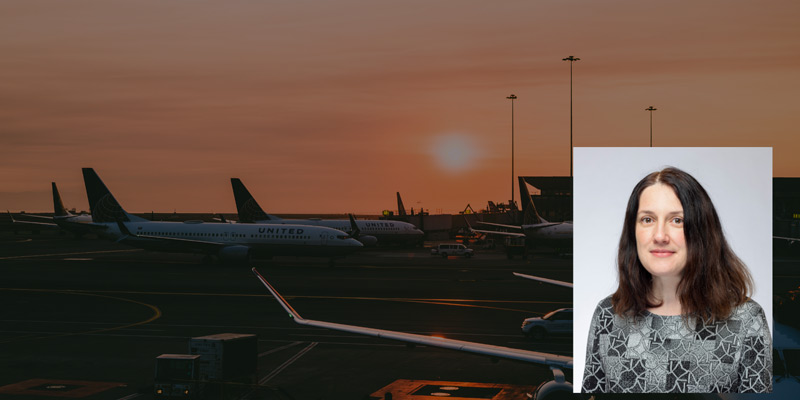
2022: The Summer of Revenge Travel
The phrase revenge travel has been thrown around, especially with the lifting of restrictions on travel. Revenge travel refers to the lengths that consumers are willing to go to travel post-covid. This includes prices, destinations, or accommodations. Edwards Associate Professor, Dr. Monica Sarghie (PhD), shares her perspective on this phenomenon.
“Let me start by saying that I believe the name of ‘revenge travel’ is very unfortunate, as it suggests negative emotions. It sparks angry thoughts and outlines a mindset that is not beneficial for consumers. I am talking about people as consumers or customers because my outline is from the consumer behaviour standpoint. From this perspective, I think researchers, practitioners or scholars could coin a better name, along the lines of ‘rediscovery travel’, ‘reset travel’, or anything that would celebrate the opportunity to travel again. Celebration must be anchored in gratefulness, and we should be mindful of the fact that there are people across the globe who still cannot travel. Those who are able to travel may view it as a short window of opportunity, due to the uncertainty surrounding the pandemic and the volatile geopolitical situation. Revenge travel will likely have a booming season in the summer of 2022. There are a number of bases for forecasting this. One way to predict the boom is based on research regarding actual revenge behaviour. There are studies in marketing indicating that consumers do engage in revenge behaviour, usually towards companies that have done something wrong to them. Vengeful behaviour is not necessarily in their best economic interest. That anger and focus on revenge might overshadow rational logical consideration, even their own financial wellbeing.”
“If we focus on the positive side, there is literature that discusses scarcity. People will buy more products if those products are limited in number or difficult to get. In the travel context, consumers have been forbidden from traveling, so now that they are allowed to do so, they will come back in full swing and try to get those opportunities as much as possible. From a scarcity standpoint, this is very likely to happen especially because covid is not yet behind us and people don’t know when there is going to be another limitation. They will try to take advantage of the current window of opportunity. Consumers will attempt to make the best of it, enjoy themselves and get a story to tell their friends, children, or family members. I believe that revenge travel is likely to flourish in the near future.”
What does this mean for the travel industry?
“The travel industry should be prepared for a significant uptake in offers. I foresee a large sellers’ market. Businesses will be able to command prices and impose extra charges. For example, hotels may start charging a premium for things like mountain or ocean views. These perks were often included in the price, but now I can see hotels really imposing a premium on these features which could be anywhere from $30 to $50 dollars a night added on. In the future they may revert to more reasonable prices or a different strategy. Right now, I expect they will take full advantage of revenge travel. This can be perceived as taking advantage of consumers, but at the same time we must remember that the entire industry has been hit very hard in the past two years. From that standpoint they must recoup their money and they feel almost forced to apply those kinds of premium prices.”
How will this impact the work you do?
“To me, it is always very interesting to study the consumers and how they react. My approach will be to keep a close eye on what consumers deem fair in this interesting environment. Where do their fairness perceptions lie, do they think the premium prices are justified? I envision that they will be willing to pay higher prices in the short run, but will that trigger some backlash in the future? That is the area I want to continue exploring.”
